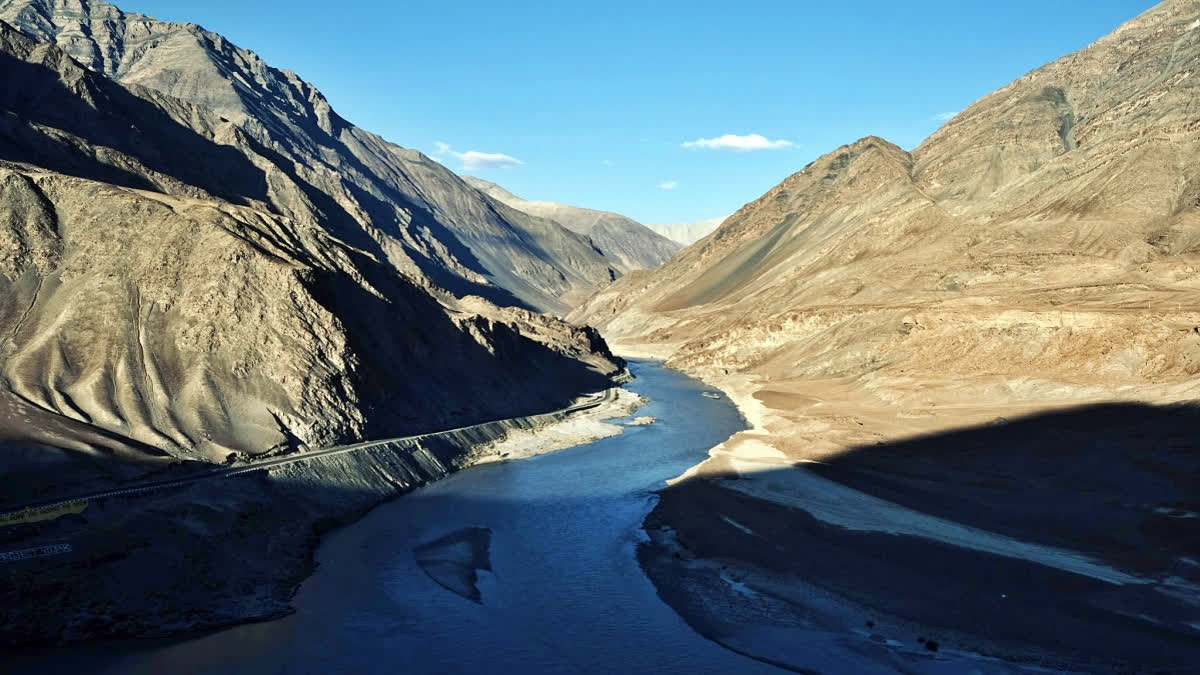Srinagar: As the Jammu and Kashmir Union territory goes for polls on September 18 in the first phase of the assembly elections, its erstwhile part, Ladakh, will be watching with awe and shock as the residents of the cold desert are planning a foot march for statehood.
The Leh Apex Body (LAB) has announced a march by foot from Leh to Delhi from September 1 to press the Government of India to resume the talks with LAB and Kargil Democratic Alliance (KDA) leaders for their four major demands. LAB and KDA are groups formed after the abrogation of Article 370 in Leh and Kargil by the political and social leaders who are spearheading the demand for statehood.
The demands include granting full statehood with an assembly, six schedule status, setting up a public service commission for recruitment and one more parliament seat. Ladakh was part of Jammu and Kashmir until August 5, 2019, when it was given a union territory status by the BJP-led government after the abrogation of Article 370.
Its two districts Kargil and Leh would elect four legislators to the Jammu and Kashmir assembly, while its political leaders would also be nominated to the legislative council which was abolished on August 5, 2019.
After becoming a Union Territory, which was a long demand of the people of Leh, Ladakh is administered by a Lieutenant Governor and his advisors. It won't have any voting rights until statehood is granted to the strategic region. However, the voters of the UT elected a lone member of parliament even as the people demand the creation of one more MP seat.
Asgar Ali Karbalai, the former Congress legislator from Kargil, said that the people of Ladakh have been deprived of their voting and democratic rights after the abrogation of Article 370.
"Jammu and Kashmir was downgraded to a union territory too, but the voting rights were not snatched as the assembly was kept in place. To get back our voting rights, we are fighting for statehood and sixth schedule," Karbalai told ETV Bharat. "We want full statehood with legislative, financial and executive powers. That is the only way to resolve our issues, else we will keep fighting," he said.
Ladakh with a population of 3 lakh has two Autonomous Hill Development Councils -- one each for Leh and Kargil districts -- for which people elected councillors who execute the development of the new UT. These Hill councils were formed in 1995 under the Ladakh Autonomous Hill Development Council Act 1995. Headed by an elected chairman, the councils have 30 elected members who carry out the local development works in the two districts.
Political and social activist of Ladakh, Sajad Kargili said that the councils are elected for small development of the region like electricity, sanitation and road infrastructure. "Councils can't replace an elected assembly which has legislative powers for making laws. To become empowered, the people of Ladakh demand full statehood so that they make their laws to protect the region and its interests," Kargili told ETV Bharat.
Chering Dorjey Lakruk, who is co-heading the LAB said that around 100 volunteers will start the protest march from Leh to Delhi which will be taken through Himachal Pradesh. He said that climate activist Sonam Wangchuk will also join the march which will reach Delhi on October 2, the birthday of Mahatma Gandhi.
Karbalai said that KDA supports the protest. "The march by foot was proposed from Jammu and Kashmir, but it was cancelled due to the assembly elections there. Now it will be taken from Leh via Himachal Pradesh. We fully support the march," he said.
Jammu and Kashmir is slated for three-phase assembly elections beginning September 18. This is the first assembly elections in the UT after Article 370 abrogation. The last assembly elections were held in 2014 in the erstwhile state.
Read More



